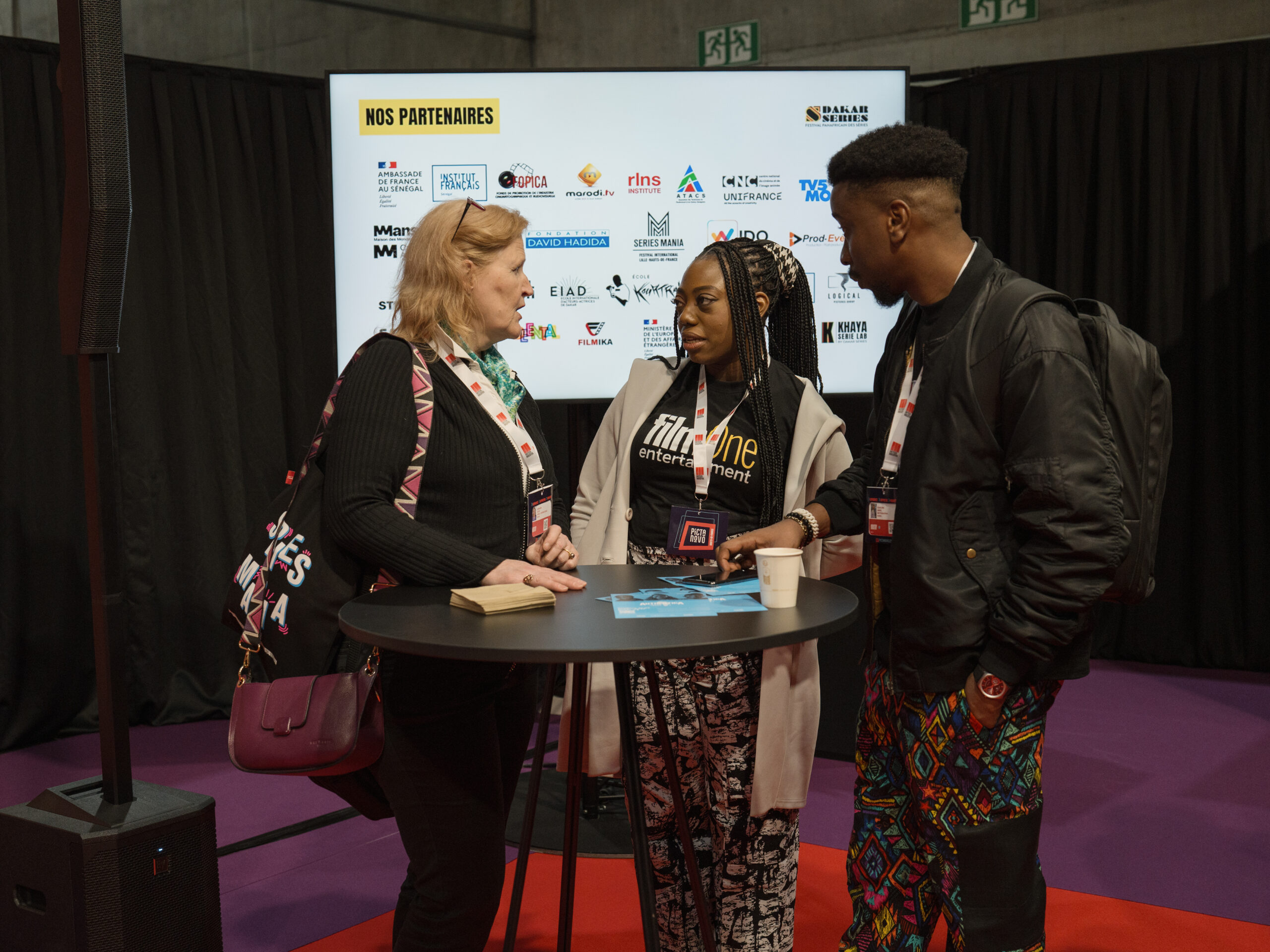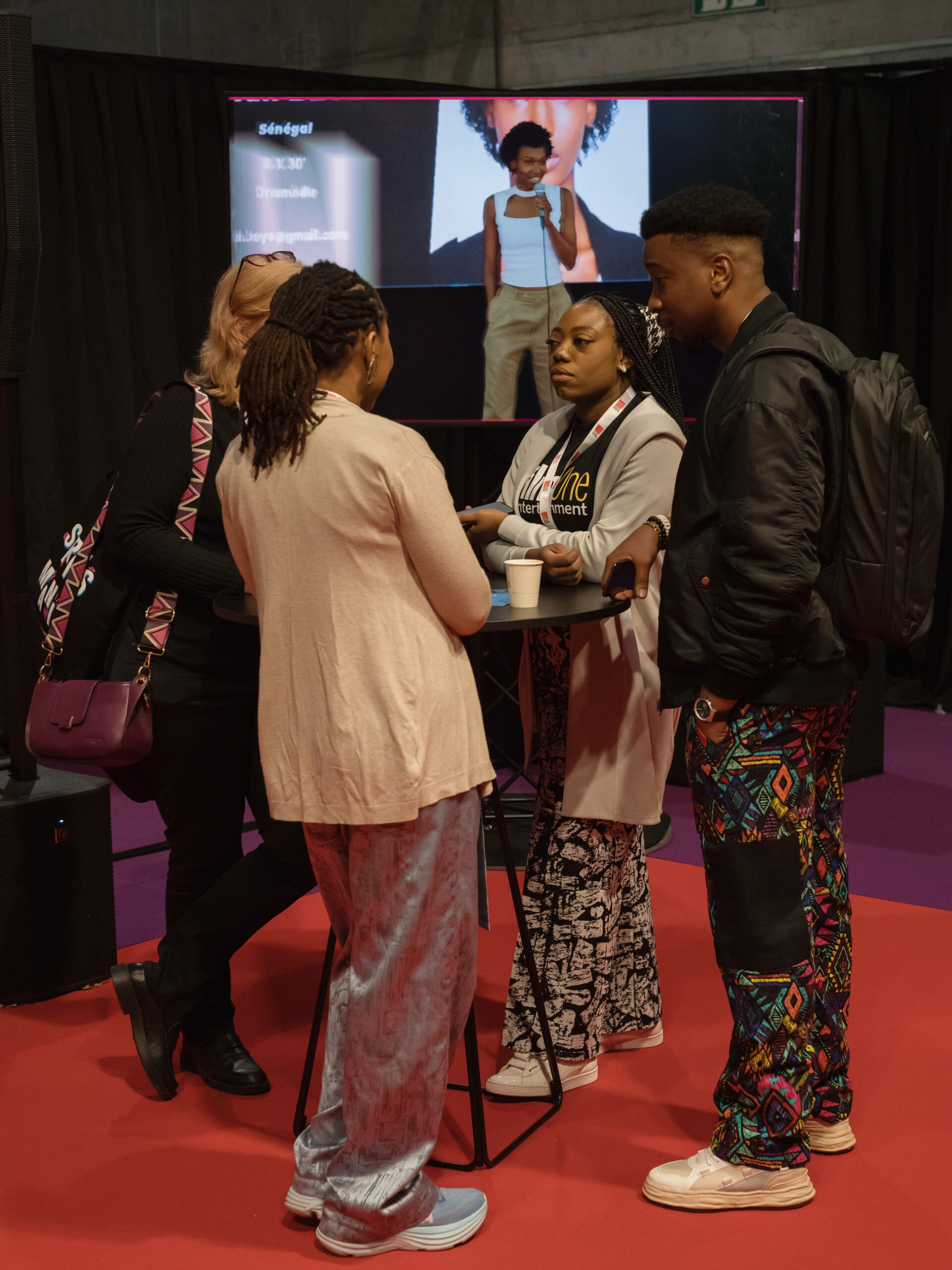At the Series Mania Festival, 30 African delegates, including producers, distributors, broadcasters, and other industry professionals, gathered in Lille, France, to foster new partnerships and discover emerging talent. Among these delegates were ten Nigerian representatives: Mimidoo Bartel, Chioma Ude, Zulumoke Oyioba, Daniel Olaoluwa, Enyi Omeruah, Blessing Uzzi, Moses Babatope, Onome Ifeanyi, Chioma Onyenwe and Kunle Afolayan.
In our exclusive Series Mania Interviews, we spoke with several Nigerian delegates to explore the state of Nollywood on the global stage, the perception of Nollywood worldwide, the cultural exportation of Nigerian cinema, and Nollywood’s relationship with Artificial Intelligence, among other related topics.
Our third conversation is with Daniel Olaoluwa, who serves as the Head of Marketing and Audio Engineer at Terra Kulture, where he has produced numerous radio jingles and theme songs for both Terra Kulture and BAP Productions. His expertise extends to film and stage productions, having worked as a sound designer, music composer, ADR engineer and music producer. Daniel is an AMVCA nominee.
Photo Credit: Aimée Thirion
Hello Daniel. Thank you for speaking to me. What are your expectations from Series Mania, and what areas, from what you pick here, do you hope to export to Nollywood?
I mean, it’s a very big market. I think it’s a needed event where people from all over the world come to exchange ideas and network and sell and buy, basically. So how it helps us is it helps us to export and also to collaborate, which is very important because collaboration is always key. There’s always stuff that we can learn from other people, and there’s stuff that they can learn from us too. So, partnerships in Nollywood are important and help us to basically take Nigerian culture to far places in the world, to other places where we can basically expand our reach and show how rich and beautiful the Nigerian culture and Nigerian stories are.
That’s very beautiful, especially where you mentioned culture and pushing it to the world. But do you think that Nollywood has that quality enough for cultural exportation like, say, South Korea?
I believe that our stories are very unique. You can see it with our music and all of that. We have this thing that once people get into Nigeria, they just love it because we have a very beautiful, very rich culture and amazing stories. Even to us Nigerians, we know how our stories are. We can improve on the quality of how we tell the stories, you know, but the stories stay true to us. And like I said, collaborations like this (Series Mania) are what will help us to better tell the stories.
We’ve been on a good trajectory, if I can say so, over the last decade or more with Nollywood. It’s definitely coming up. Are we where the South Koreans are, for example? Maybe not, but we’re definitely going to get there. The future is bright, if you ask me. There’s a lot of young people that are doing new things and all of that. And you can see that if we keep at it, we’re definitely going to get there.
Speaking of the future, do you think that this technological advancement can shape the future of Nollywood?
Definitely, you have to move with the world, otherwise you’ll be left behind. And with film, the film language is also evolving—how films are being told, the tools that are being used to tell them. So definitely, we have to tap into it. I think some people have already started doing it.
AI is a tool, and we have to know how to use it and also use it to enhance our storytelling, which is definitely something that I know people are doing—or some have already done. It definitely has its role to play, and I believe it is going to be important in helping us enhance the quality of what we do, especially with speed because it helps you do things faster and all that. It would also help with learning, how to do things better. So yeah, definitely, the world is moving forward, and we have to join them.

Photo Credit: Aimée Thirion
That’s really good, Daniel. As someone involved in the industry, what are some challenges, apart from funding, that you’ve observed?
I mean, filmmaking as a craft on its own is basically solving problems—challenges each day on set. It’s challenging in post-production and all that. But in the grand scheme of things, what are the major challenges apart from funding? I would say education because most of us in the industry—or most of the people on set or in post—are people who more or less learn on the job. And there’s only so far that can take you compared to people in other industries who have gone to school to learn these crafts and understand the real technicalities of it.
If we can have that level of education, not just for the filmmakers but even the actors and everybody involved in the industry—the business of it and all that—that’s something that can definitely push us forward to better utilise our time, our money and our resources. As they say, knowledge is power. So, I believe that’s one of the major things that we can work on.

Photo Credit: Aimée Thirion
We have a lot of film villages in Nigeria now. And when people talk about these film villages, they are often associated with epic movies. I would like you to talk about why these film villages are important and how they are going to shape the future of Hollywood
So, film village—I think maybe because of the term “village,” it can be quite confusing for some people because they automatically associate it with an epic story. But basically, a film village is a space where, instead of having to physically go to different locations to shoot based on the story, you have a particular space where you can construct your sets.
You can have a film village and shoot a movie set in the year 2539 if you build that kind of set there. It’s essentially a space that saves production costs—for example, money spent on transportation. Instead of shooting in VI today and Ikorodu tomorrow, you can construct a VI-looking house and an Ikorodu-looking shop all in one space. That’s the point of film villages.
In the future, I think we can even get to the point where we have entire towns that are film villages—like what they have in Hollywood. They have huge spaces with roads, sections, and other setups that are actually part of a film village. So, it plays a huge part. When someone has the vision to dedicate an entire space, it allows things to be done faster and more efficiently in one location.
It reduces stress on cast and crew. You’re not traveling all the time—everyone is lodged in the same space. You wake up, go to set, shoot and go back, instead of getting stuck in Lagos traffic or avoiding things that affect your timing, your schedule, and everything else. On a film village, everyone is present, and you can be locked in for weeks or months just to shoot everything and be done.
I wish there were more film villages. I wish that just like we have federal and state universities, we could have federal film villages and state film villages in every state. That would automatically increase the level of the industry in those states and provide jobs.
Your film village wouldn’t just be a shooting location, but you could have your post-production studio building there, too, where your editors and everyone can work. Everything would be done in one space because that’s how it works. Hopefully, we’ll see more of that coming up in the future.
Thank you for speaking to me, Daniel
Thank you for having me.
___
Séries Mania Forum is the industry arm of the Séries Mania festival, which has established itself as the premier international television series event. The Forum provides a platform for producers, distributors, broadcasters and other industry professionals to develop new partnerships and discover emerging talent.


